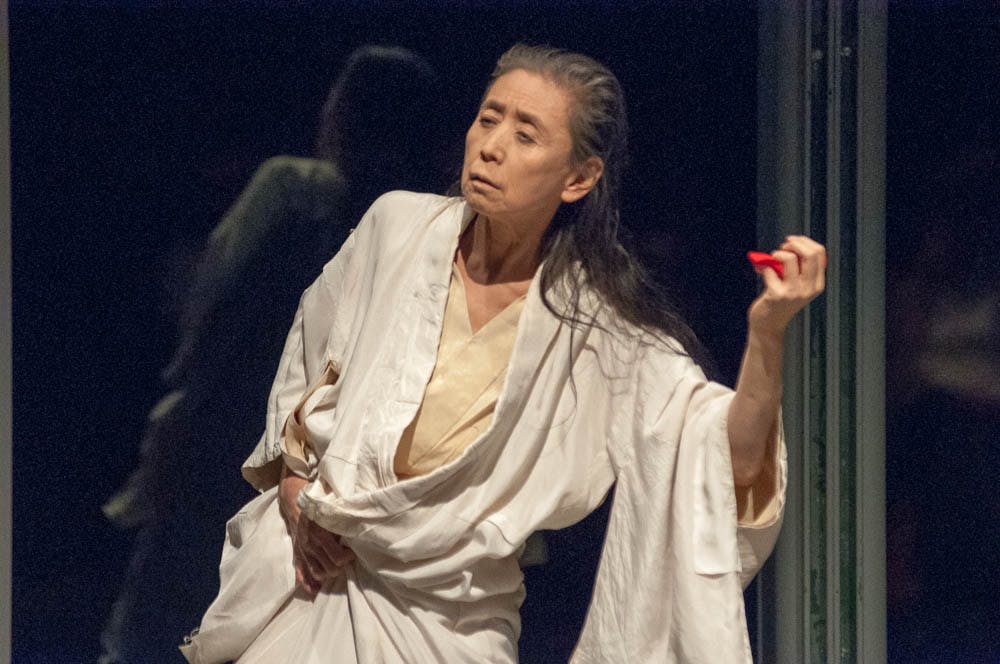The literary arts department hosted “Come Shining,” a two-day memorial tribute to the late award-winning poet and Professor of Literary Arts C.D. Wright Nov. 9 and 10. The memorial commemorated Wright’s life and work through readings, presentations and exhibits by her colleagues and former students.
The memorial events began Wednesday evening in the Granoff Center for the Creative Arts with an introduction from President Christina Paxson P’19. “To me, C.D. embodies all I could hope for in a poet: Her voice revealed the injustice in the world and celebrated the goodness in life,” Paxson said.
Paxson recounted memorable stories of Wright’s interactions with professors, deans and students at Brown. “C.D. was an inspiration to a new generation of poets. Her passing left a hole in this community,” she said. “At Brown, we teach students to live lives of meaning, and C.D.’s poetry gives inquiry into the lives of other human beings.”
Professor of Literary Arts Carole Maso recounted her experiences working with Wright. “I taught with C.D. for 20 years. She was the one who hired me and made Brown seem an irresistible adventure I couldn’t refuse,” Maso said. “She loved every minute of being in the world — it all fascinated her.”
Maso also addressed C.D.’s work in the context of the current political climate, specifically the victory of President-Elect Donald Trump, which had occurred the night before. “Today is a day where so much courage is required,” Maso said. Author Peter Gizzi also discussed Wright’s work as it pertained to the election, quoting the poet’s own work: “The division between urban and rural is the only serious border left to us. One serves to undermine the other,” he read.
William Johnston, a professor at Wesleyan University, walked through a series of photographs in a project he collaborated on with Wright. “If the word ‘sharp’ had never been used as a metaphor for the mind, it would have been used to describe hers,” Johnston said. Author Joan Retallack also shared her memories of working with Wright. “C.D. brought skewed angles of noticing to everything she did,” Retallack said.
“Poetry is the language of intensity. Because we are going to die, a language of intensity is justified,” Retallack read. “There is soul and urgency and humor in her work that keeps things moving,” she added.
Author Steve Stern spoke of his lifelong friendship with Wright and the impact of their friendship on his writing. Stern began his speech by telling the guests, “Forgive me if I tend to view her as somewhat larger than life — the problem is, she was.” Stern’s friendship with Wright began in her native Arkansas and continued at Brown, where she was a “feminist rabble rouser” who was “possessed of a passion for social justice.” Stern commented on Wright’s friendship with the Clinton family, noting how “their conversation back then seemed to take for granted that the arc of the moral universe really did bend towards justice.”
The memorial continued Thursday with more readings of Wright’s poetry and commentary.
Poet Laynie Browne MFA’90, a former student of Wright’s, said “C.D. was an amazing role model for me and one of the first poets I met that showed me a life in poetry — an admirable and enviable life — might be possible.”
Author Camille Guthrie MFA’96 also spoke of her experience being Wright’s student. “When C.D. was my teacher at Brown, we read all sorts of books and poets. Only later I had realized she had plucked me out of my youth and (given) me two years to read and see what it was to be a poet,” Guthrie said. “She was witty and lively and loyal and magnanimous.”
“I can’t go anywhere at Brown without thinking of C.D.,” Senior Lecturer in English Catherine Imbriglio MA’88 PhD’95 said.





